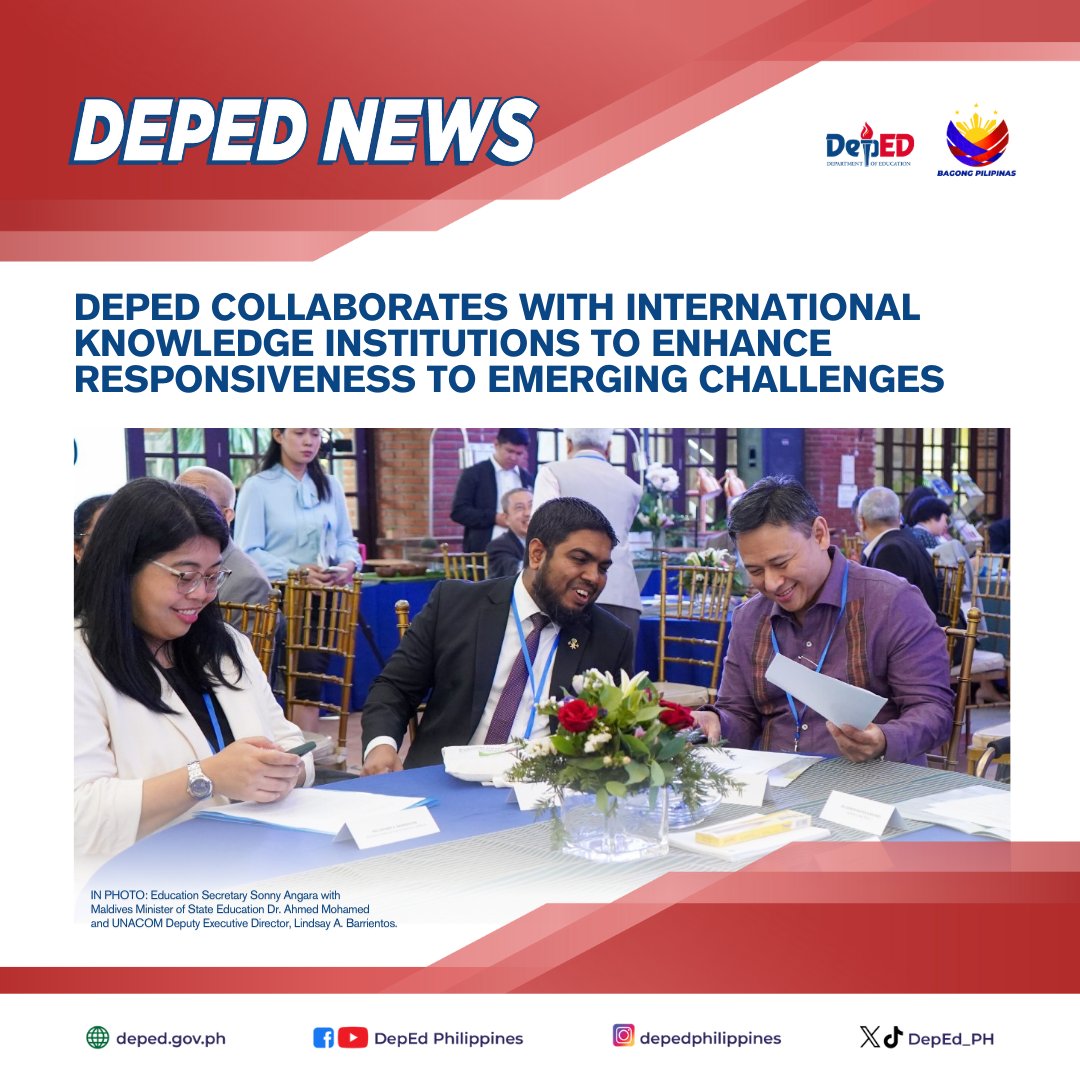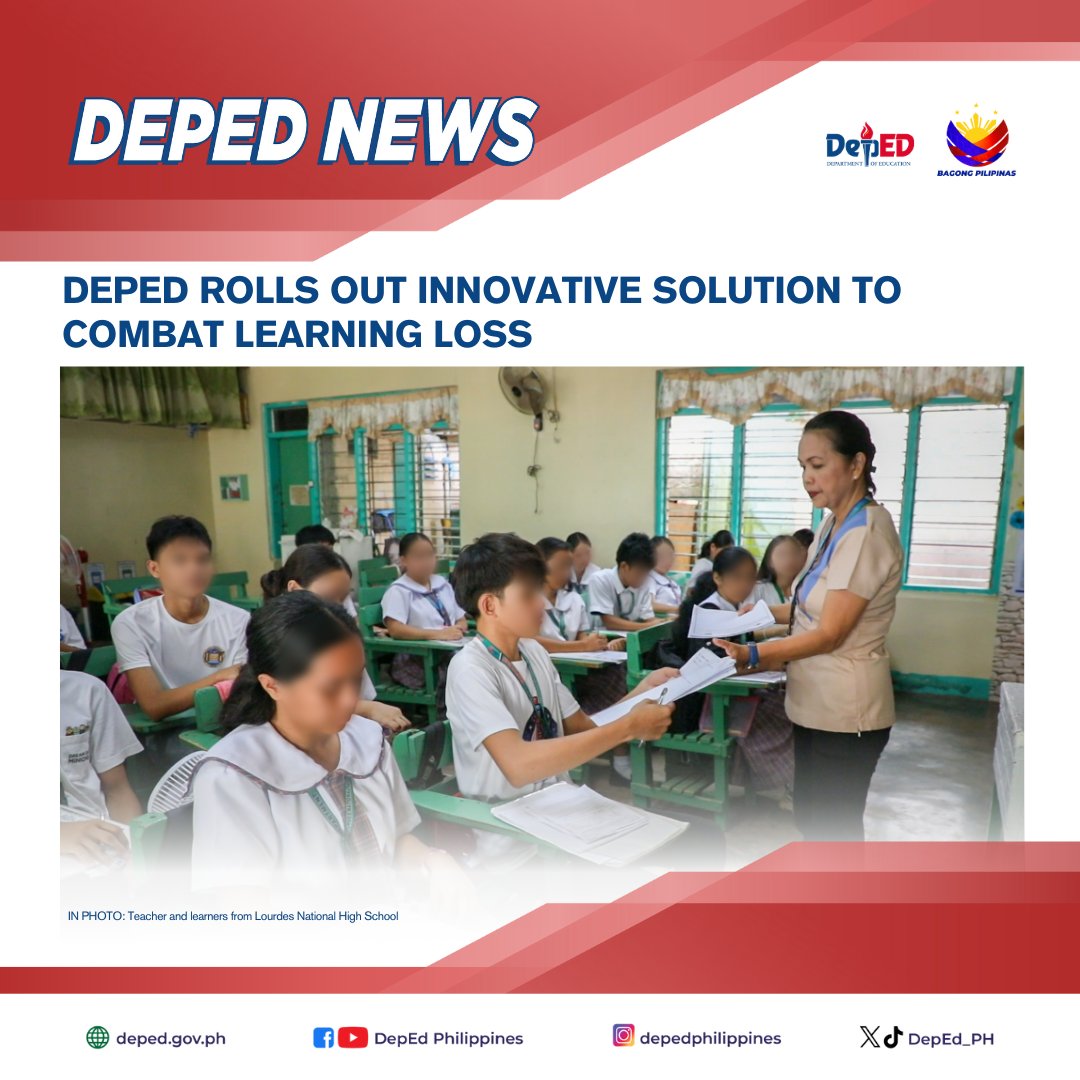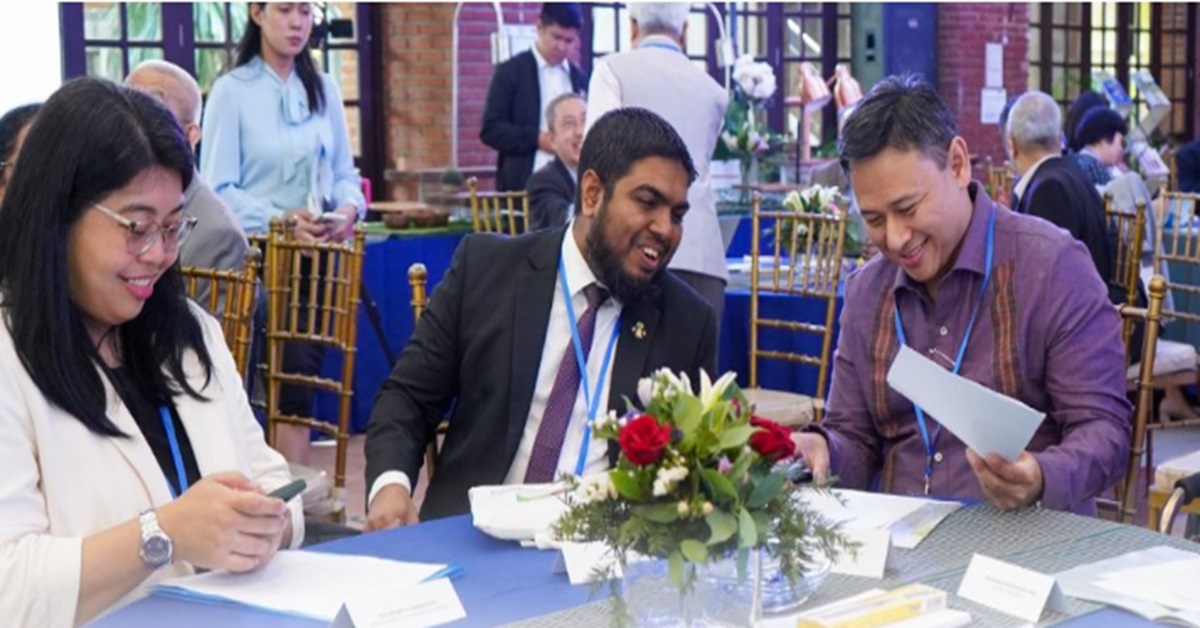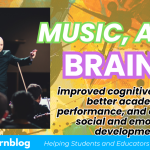The Department of Education collaborates with global knowledge institutions to enhance responsiveness to emerging challenges.
According to DepEd Philippines, DepEd Secretary Sonny Angara emphasized the importance of robust educational planning to ensure learning continuity amid climate-related disruptions during the UNESCO-IIEP Regional Conference on Educational Planning in Asia, which took place from November 5 to 7.

Photo courtesy: DepEd Philippines (FB)
“Our planning systems must adapt—and adapt quickly—to our new reality. Our education systems must be stable and predictable even in times of emergency,” Sec. Angara said.
Referring to recent tropical storms that affected schools in the Philippines, Angara emphasized the necessity for educational systems to swiftly adapt in order to maintain stability and lessen the reliance on community resilience alone.
He also shared that the Department of Education (DepEd) had already started exploring adaptable programs for schools with limited resources, even before the storms occurred, to prevent further disruptions in learning.
“Even before the storms hit, we were already in search of an alternative program that can be adapted to resource-strapped schools. Our rationale was clear: Filipino learners—our region’s learners—cannot endure any more losses,” Sec. Angara emphasized.
DepEd has introduced the Dynamic Learning Program (DLP) to ensure education continuity in schools affected by Typhoons Kristine and Leon, promoting independent and resource-efficient learning during times of crisis.
With this initiative, DepEd aims to restore educational access for students by fostering resilient and adaptable learning practices. The DLP’s deployment aligns with President Ferdinand “Bongbong” R. Marcos Jr.’s (PBBM) directive to ensure proactive learning continuity in times of disaster and emergency.

Photo courtesy: DepEd Philippines (FB)
Angara also highlighted the importance of learning from neighboring countries and working together to develop strategies that make education more accessible and responsive to ongoing challenges.
The UNESCO-led conference seeks to strengthen partnerships among members of the Asian Network of Training and Research Institutions in Educational Planning (ANTRIEP), aiming to integrate evidence-based insights into educational policies.











